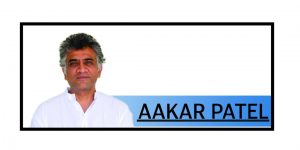Empty Ambition

When was the last time you read or saw something about India and the G20? And what do you recall from that memory? Like me, for many readers, the answers are most likely to be: when India was in the presidency a couple of years ago, and the posters and hoardings about India’s presidency.
If asked what outcomes were achieved in that presidency or what plans exist to follow up with what we initiated, I do not have an answer because, like you, I do not know. The G20 thing was an opportunity for an event, and that event is over.
A few days ago, again, India went to the United Nations and asked that the institution reform itself. Formed in 1945 just after World War 2 ended and two years before Indian independence, the UN Security Council retains the same five permanent members. When India uses the words UN reform, what we mean is that we also want a permanent seat in the Security Council, with a veto.
In the words of our foreign minister, “The historical injustice done to Africa should be redressed. Both permanent and non-permanent membership of the Council must be expanded. A reformed Council must be truly representative. And India stands ready to assume greater responsibilities.”
These greater responsibilities that we are ready to assume is the subject of this piece. It is fine to have ambition; the question is what we want to do with it.
The BJP’s 2024 manifesto, like the one in 2019, has a line about this. It reads: “We are committed to seeking permanent membership in the UN Security Council to elevate Bharat’s position in global decision-making.” How would this be secured? This was not elaborated on. What would India say to convince all five permanent members and two-thirds of the general assembly that it should be given more power? What was the pathway to becoming more popular with the world? No mention of that.
Other than the idea that India was entitled to more than it had and should be given it by the world, there appears to be no direct and specific aim of this aspect of foreign policy.
Let us suppose we got this seat. What would we do with it that we cannot do today? No clarity on that either. On Gaza and Ukraine, the two most pressing global issues of our time, India’s contribution has been to abstain from crucial votes in the UN. Having or not having the veto would have made no difference when there is nothing one has to say to the world.
China’s rise since 1990 to superpower has come on the back of industrial policy and economic growth, not on the basis of its UNSC seat.
In the 2014 manifesto, the BJP said that in the foreign policy of its predecessor the UPA, “instead of clarity, we have seen confusion” and because of “absence of statecraft,” India “is seen to be floundering, whereas it should have been engaging with the world with confidence.”
Under Manmohan Singh, India had “failed to establish enduring friendly and cooperative relations with India’s neighbours” and “India and its neighbours have drifted apart.” The party would correct this and “strengthen SAARC.” The fact is that SAARC has not met since November 2014 because we do not have any interest in it. The leaders of Afghanistan, Bangladesh, Maldives, Nepal, Pakistan and Sri Lanka have all changed since that summit meeting. India has the same person at the helm.
We cannot even bring our neighbourhood together but believe that if given more power at the UN, we can reform the world. The BJP’s manifestos tell us the party will do more to link with ASEAN, but we chose in 2019 not to join the free trade agreement spearheaded by ASEAN, the Regional Comprehensive Economic Partnership.
The words “vasudhaiva kutumbakam” appear in the manifestos, but try telling Rohingya fleeing genocide that India sees humanity as a joint family. Try telling the Bangladeshi refugee that, or those excluded from the Citizenship Amendment Act. There is no value residing in those two words, and they offer nothing other than platitudes.
The question we must then come to is this: if we do not have a pathway of getting there and if we do not know what we will do with our veto, why are we clamouring for a bigger role? The answer takes us back to where we started in this column. It gives us a forum to strut about and pretend we are the leader of the world and the leading light of the global community.
It is another place where we can pretend we are relevant and can display our personalised and very physical diplomacy.
The world knows this. It has observed us and has heard our words and our silences and abstentions. It does not for a moment buy the idea that any one nation “deserves” a thing more than the rest of them.
It is for this reason that it is a good thing that the government has not laid out a pathway to getting to a UNSC permanent seat. If it did, there would be questions for which it has no answers.
By Aakar Patel
Orissa POST – Odisha’s No.1 English Daily
News